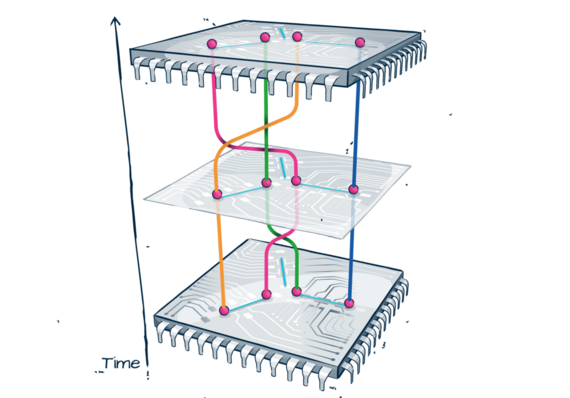Majorana Fermions
A Source of Hope for the Quantum World

The first quantum processors can solve tasks in minutes that would take conventional supercomputers years to complete. For applications in artificial intelligence or quantum cryptography, however, they must be capable of much more. The greatest challenge of current research is the search for an approach that makes 1,000 QuBits simultaneously possible. Topological QuBits, whose quantum states are significantly more stable than those of sensitive, non-topological ones, promise the greatest potential in this respect. The scientists of the Cluster of Excellence ct.qmat–Complexity and Topology in Quantum Matter thus concentrate on Majorana fermions.
Majorana fermions are smallest "quasi-particles . This means that they behave like particles, but are not particles at all. In fact, they are an effect that occurs at low temperatures in specially designed materials. Physics speaks of "emergent particles". The Majoranas always appear in pairs and often spatially separated from each other - and yet they are connected with one another. In quantum physics this is called "entanglement".
Several Majorana fermions at a time can store one QuBit. Arithmetic operations are performed by the exchange between them - more precisely by their movements around each other. The result depends exclusively on the geometry or topology of this exchange path and is therefore stable against perturbations.
"Exotic Wonder Particles"
The exotic Majorana fermions were first detected in a solid in 2012. The "wonder particles" are named after the Italian physicist Ettore Majorana, who proposed their existence as early as in the 1930s. However, he was convinced that they would eventually be discovered as elementary particles - and that they were both matter and antimatter at the same time. Nowadays, the assumption prevails that such extraordinary elementary particles do not exist. But they have been found as quasi-particles in quantum materials. They could make possible what high-tech industries and the scientific community dream of: the "next big thing" that will change the world. The quantum computer.

